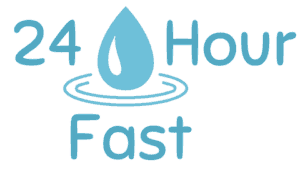If you have ever tried intermittent fasting, you probably found yourself in that situation. You have been fasting for several hours or much longer and want to make yourself a drink or take a bite. Just to make the whole process a little bit smoother. But what you definitely don’t intend to do is impact your fasting state. So what food or drink will let you do that? Let’s dive into this and see what actually breaks a fast.
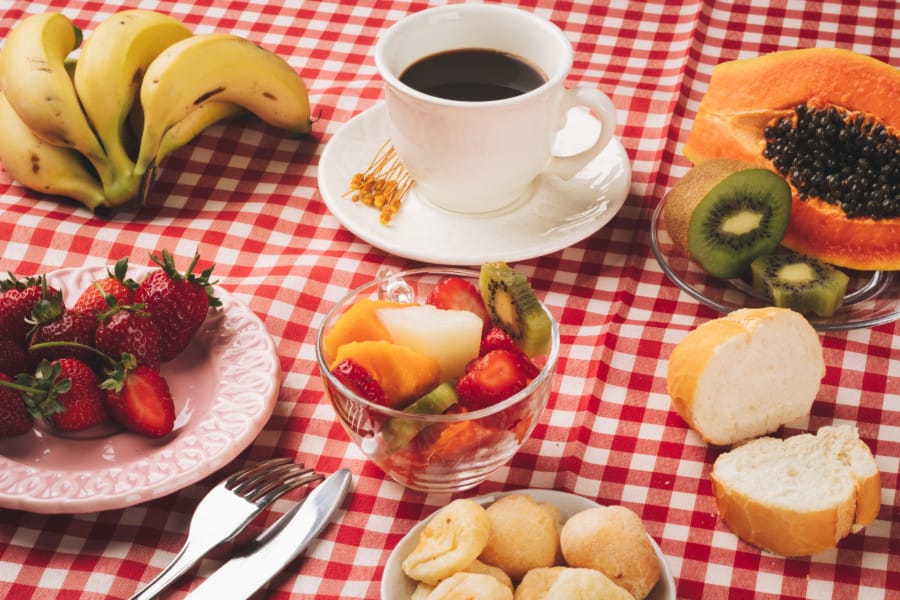
If you are new to intermittent fasting, this is a very simple concept. First of all, it is not a specific diet and doesn’t advocate the intake of specific types of food. It’s more about when you eat than what you eat or how much you eat. That said, it’s important to keep in mind that a healthy and balanced diet is important. Regardless of whether or not you practi
Intermittent fasting is an eating pattern that alternates periods of eating and periods of fasting. It’s not only focused on restricting calories but is also meant to let your body recover rather than digesting most of the time.
How many calories break a fast?
This is one of the most common questions regarding what breaks a fast. Truth is there is no evidence or clear research that would define an actual threshold of calories. Theoretically speaking, eating or drinking anything will break your fast. But in practice, things need to be considered a little bit differently.
When we are wondering whether “X” breaks a fast, what we are really asking is: is this food or drink going to interfere with the benefits of fasting and push my body to leave its fasting state? The latter is mainly defined by whether or not it will trigger your insulin to go up and peak after you ate.
As we eat, blood sugar level increases. In order to decrease that level, insulin is secreted and helps in the process of storing that energy into the cells. This stored energy can then be used by the body whenever needed. After around 8 hours, all the food has been digested and the body then enters a fasting state.
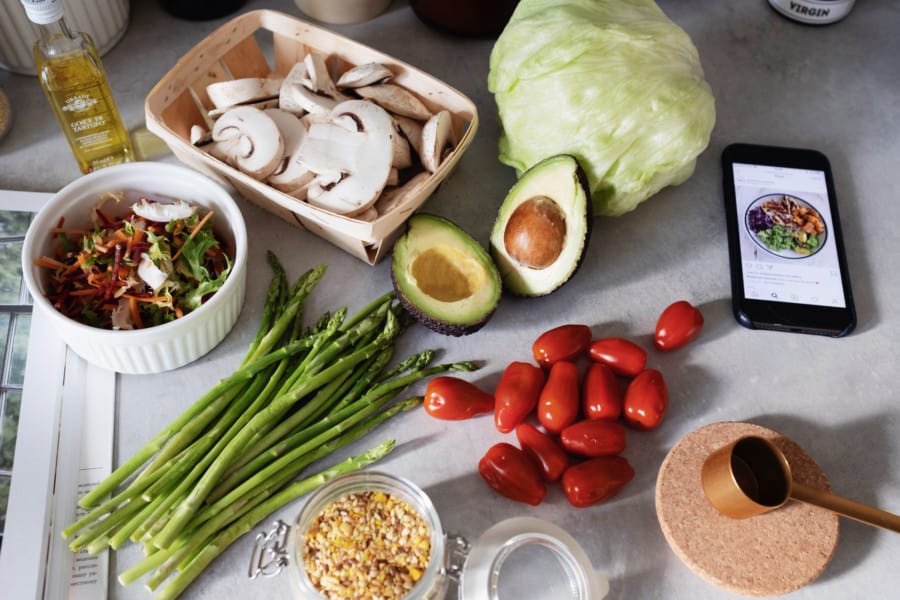
A general rule of thumb advises that anything lower than 50 calories won’t break your fast. While calories are definitely an important factor to take into account here, the type of food that you eat, and the insulin response it triggers as a consequence is also something to consider. High sugar-content or high-carbohydrates food or drink will have a much bigger impact on the insulin response for example.
What you should really focus on is: why are you fasting? For which benefits? And will the drink/food that you are about to take will impact this benefit negatively?
Why are you fasting?
Intermittent fasting can be beneficial in different aspects, like weight loss, fat loss, ketosis, autophagy, lowering blood sugar or reducing inflammation.
Some of these benefits remain effective during a fast even with the absorption of some macro-nutrients. Ketosis, for example, won’t likely be impacted. On the other hand, you wouldn’t get all the benefits related to autophagy. That would require to fast for longer periods of time (over 24 hours) with none or very minimal calorie intake, with water, black coffee or unsweetened tea only.
If you are fasting for weight loss mainly, allowing small calorie intake during the fasting periods won’t impact your overall calorie deficit much. It might actually make the process more sustainable and enjoyable. In that case, being a bit more flexible if needed will likely be a good option, while still achieving your goals.
It all depends on your objectives and the benefits you are trying to get from fasting. Most of the time, a non-rigid approach will be easier to keep in the long term. So whether it’s okay to allow minimal calorie intake during a fast really depends on you, but for most people, it will still be beneficial.
Now that we cleared that out, let’s see what food and drinks to prefer and which ones to avoid.

Foods that won’t break your fast
1. Water
Unless you are doing a dry fast, which has its own benefits and challenges, it’s essential to remain well hydrated during your fasting periods. Water contains 0 calorie, so it will definitely not break your fast.
It can help overcome headaches or fatigue and an increase in water intake has even been linked to weight loss.
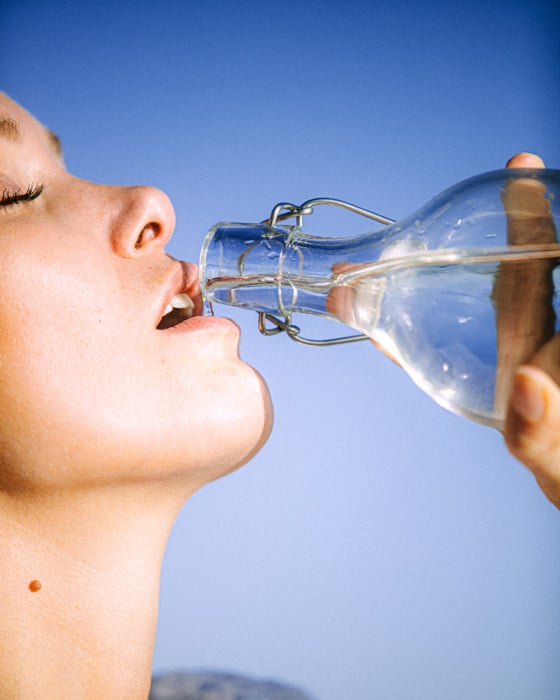
Another question related to water is: will lemon water break my fast? Check this article to know all about why it won’t. Adding cucumber slices or ginger are also great options when it comes to adding diversity into your water drinks.
2. Coffee
So does coffee break a fast? Well, black coffee hardly contains any calories and hence won’t break your fast. But you read it right: BLACK COFFEE. If you start adding sugar, cream, all sorts of milk then the calorie content will go through the roof and it will most likely break your fast.
Regarding bulletproof coffee, while the calorie content is high, it’s more in a grey area and more debatable, we will touch base on that soon.

There is also research showing that coffee can induce autophagy, so in that sense it is actually supporting some of the benefits that fasting can provide.
3. Tea
Tea is also worthwhile considering while you are fasting. In a similar way, it doesn’t contain many calories, so it won’t impact your fasting state. The caffeine contained in both tea and coffee may also help by suppressing or decreasing appetite. Which is always good support while fasting!
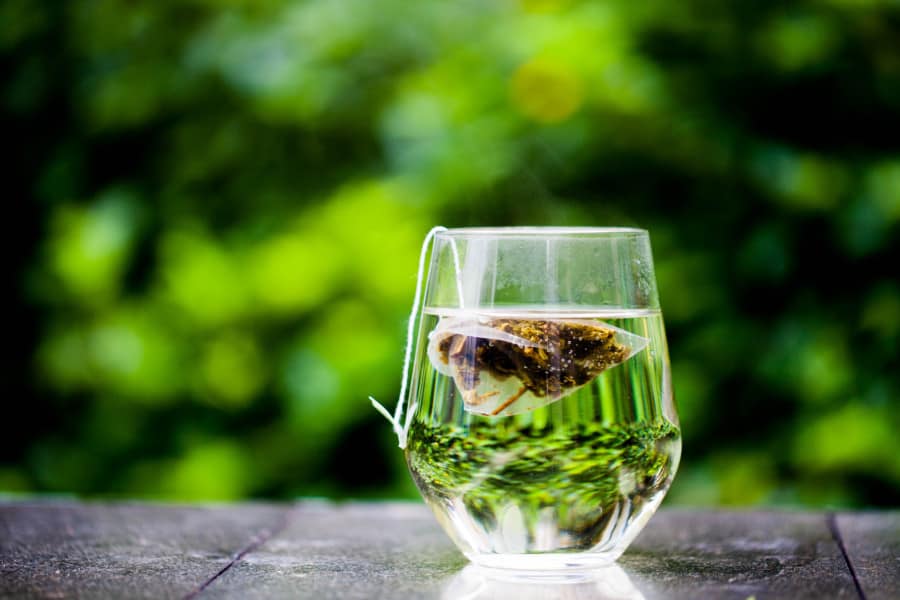
4. Apple Cider Vinegar
Apple cider vinegar is a well-known home remedy, that may be used from fighting a cold to improve skin health. You might be wondering if it’s okay to drink it during a fast. And the answer is yes. It’s another drink that contains almost no
5. Carbonated drinks (not all of them)
Well, here it depends on which carbonated drink we are talking about. You will see that we have a section regarding sodas down below, which is why it’s important to note the difference.
The carbonated drinks that are naturally flavoured and contain no calories, like carbonated water, for example, are good to go while fasting. They won’t trigger an insulin response since there is 0 calorie.
If you are going for this option, make sure it contains no calorie.
6. Salt
Salt won’t break your fast. Adding a pinch of salt in your water can actually bring you some electrolytes, which might help during fasting.
Prefer sea salt over table salt as it is less processed.
7. Stevia and Monk fruit
Stevia and monk fruit sweetener are two healthier sugar alternatives, that contains no calorie. Hence they won’t break your fast if you decide to add some. However, be mindful of the stevia brand you choose, prefer the ones certified by the Rainforest Alliance.
The sweet taste of those natural sweeteners might trigger hunger, so don’t use them if you find yourself hungrier afterwards.
8. Spices
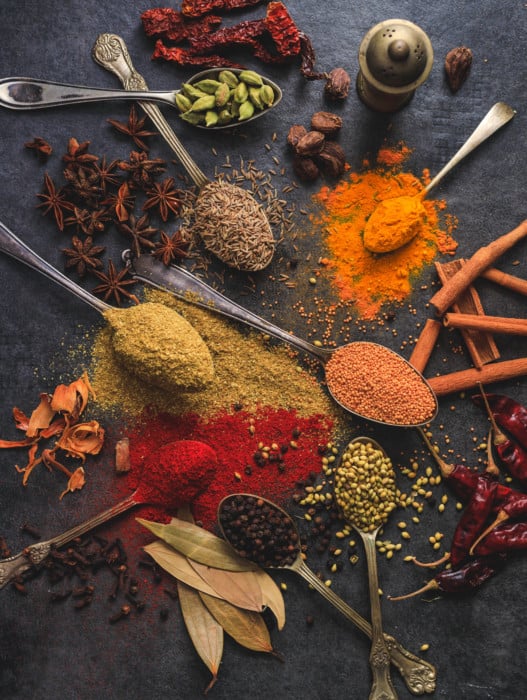
You probably won’t take your cayenne pepper and start eating it by itself… But adding it to your drinks might add some taste as well as benefits that spices can provide. Cayenne pepper, cinnamon, turmeric or other spices added sparingly to your drinks won’t break your fast, so feel free to use them.
Foods that are debatable during your fast
1. Bone broth
Bone broth is this amazing food that became popular more recently and has some incredible health benefits. It’s loaded in collagen turning into gelatine when cooked that provides amino-acids to your body. It is rich in vitamins and nutrients, like calcium, magnesium, phosphorous.
Consuming water alone for a prolonged time can reduce electrolyte levels in your body. Bone broth will help with that imbalance. Bone broth contains
So if you need bone broth to compensate imbalanced electrolytes (that can result in fatigue, confusion, nausea) or find that it helps stick to your fast for a longer period, feel free to use it. It will technically break your fast. But if you limit the quantity and frequency, it can definitely be good support.
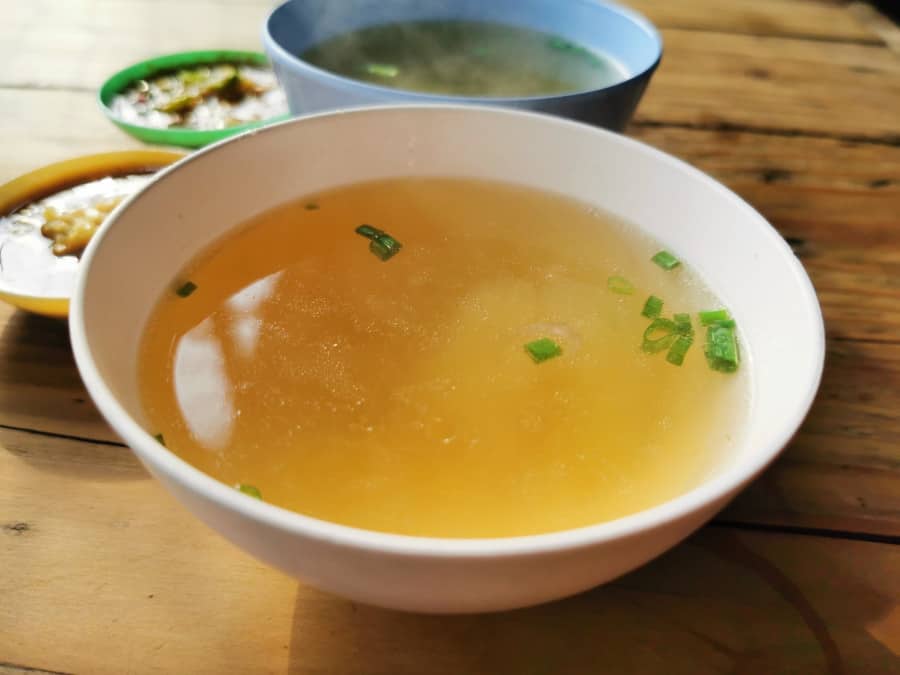
It’s also a great food to eat when it’s time to purposely break your fast and ease back into eating smoothly.
2. Almond milk
Almond milk is a little bit of a grey area. A cup of standard sugar-free almond milk contains fewer than 40 calories and if you just put a splash in your coffee, it won’t have a huge impact on your fast.
It also depends on the type of almond milk. Make sure it’s unsweetened.
Like for bone broth, if you can’t get through your fast without it, then in small quantity, it’s probably okay. If you don’t really need it, then just drink your coffee black and keep the milk for after your fast.
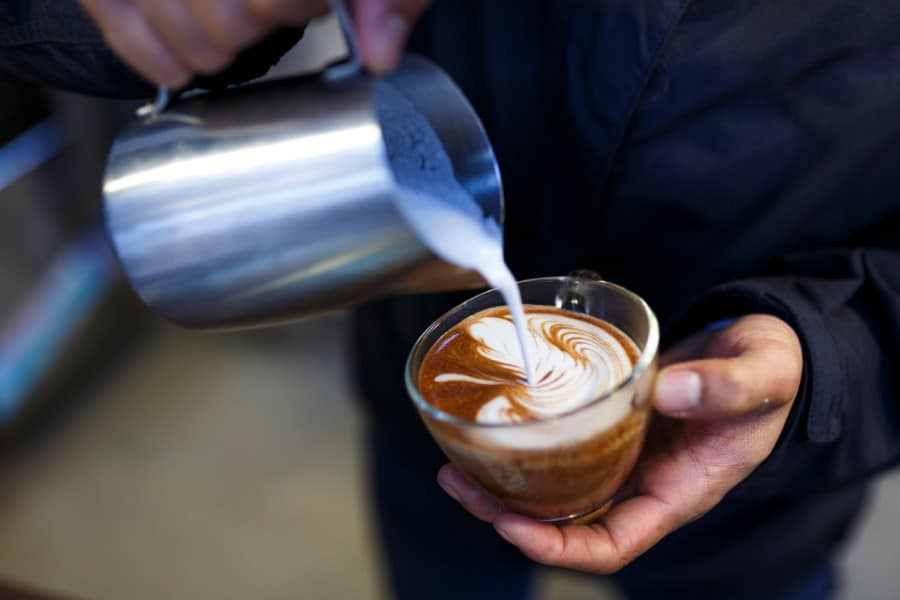
3. Healthy fats
Healthy fats include butter, vegetable oils, or well-known bulletproof coffee. Those foods contain a higher content of calories, due to the fat presence which tends to lead to more calories.
So from a strict angle, yes those will break your fast. Does that mean you should avoid them at all costs during your fast though? Well, again, it depends on why you fast in the first place. If it’s solely for weight loss, for example, having one bulletproof coffee won’t stop you from burning fat. However, you may not get all the benefits like autophagy for example.
Because those foods are rich in fat and not carbohydrates, they will have a reduced impact on your insulin level. It might go up a bit, that’s true, but one important thing to note is that it will still keep you in ketosis.
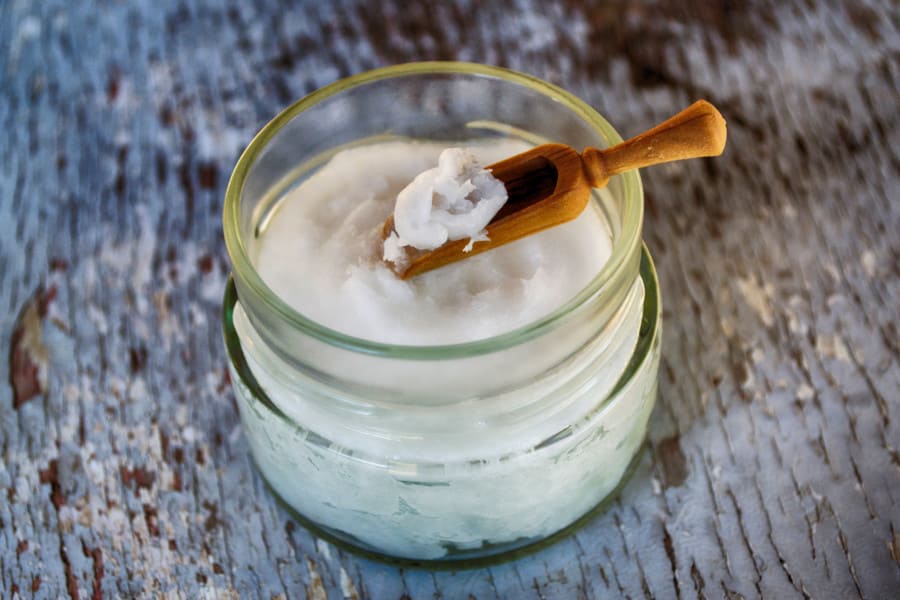
Having a fat fast (allowing those foods to a small extent) can actually help some people curb cravings and have a better fasting experience. It can also be a great technique for maintaining healthy hormone balance, especially for some women dealing with adrenaline fatigue. Obviously, you still want to watch the quantity and keep the amount small.
In short, there is a time and place where healthy fats can be taken during a fasting period. It’s fully dependent on your objectives and your current health state. While excluding them completely will lead to a more complete range of fasting benefits, if it helps to hold you off from eating a complete meal, it could be worth considering.
Here is a short video of Dr. Jason Fung, a well-known expert in intermittent fasting, where he talks about what breaks your fast:
Foods to avoid that will break your fast
While we first looked at the type of foods and drinks that won’t have an impact on your fast or a relatively small one, there are definitely some that you want to avoid.
1. Sodas and diet sodas
There are 39g of sugar in a 12 oz can of coke. Which is way more than you would want in any kind of drink or food. We won’t go in detail about this, but one important side-point to remember: sugar is bad. Try to stay away as much as possible from it.
Regular soda drinks are out of the question when it comes to a fast, and quite honestly, should be in all circumstances, whether fasting or not.
Now comes the question of diet sodas. They don’t contain any calories by definition. So can we drink them? Well, from a pure calorie standpoint, yes they are ‘technically allowed’. But why are you fasting? I assume to get some health benefits. And it seems counter-productive to me to drink unhealthy drinks at the same time.
Diet sodas can disrupt gut balance and cause a lot more issues. The artificial sweeteners can trigger sugar cravings and some have been shown to create an insulin response that will disrupt hunger signals.
Drinking artificial ingredients won’t be beneficial for your gut or your overall health, so they are definitely not recommended. Whether you are fasting or not.
2. Juices
Juices are full of vitamins and minerals. But on the other hand, they are full of sugar too. Because of their sugar content, they are to be avoided during your fasting period.
Also, keep in mind that the juices that you buy from the stores are also full of sugar. It’s better, outside of your fasting period, of course, to go for a freshly squeezed juice than a processed one.
During your fasting window, juices and fruits should be avoided.
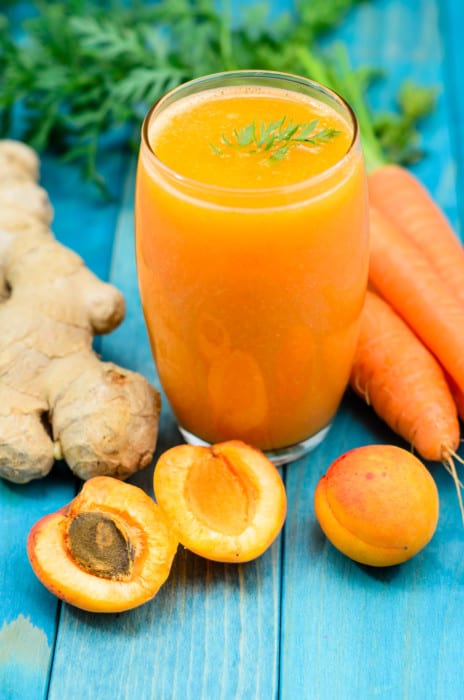
3. Alcohol
Drinking alcohol on an empty stomach means alcohol will reach your bloodstream very fast. This can lead to dehydration and increased intoxication. It’s best to avoid any alcoholic beverage during your fasting period. And reserve it to drink in moderation, if wanted, during your feeding window. Along with plenty of water to prevent dehydration.
Also, if you want to consume some alcohol, it’s better to keep it for later in your eating window, and not when you are coming right out of a fast.
What about supplements?
Supplements that will most likely break your fast
Let’s start with the supplements that it’s best to avoid during a fast as they will likely break it:
- Branched-chain amino acids, more commonly called BCAAs:
they will trigger an insulin response and as a consequence will negate some of the benefits of fasting. - Protein powder: similarly to BCAAs, they will trigger an insulin response. Plus, they actually contain calories. So they will most likely break your fast.
- Gummy multivitamins: the gummy ones tend to contain sugar and protein that could break your fast. Check the nutrition facts before taking them during a fast.
- Others: supplements that contain certain ingredients like cane sugar, fruit juice, pectin or maltodextrin can contain calories that will break your fast. It’s best to check the ingredients and nutrition facts.
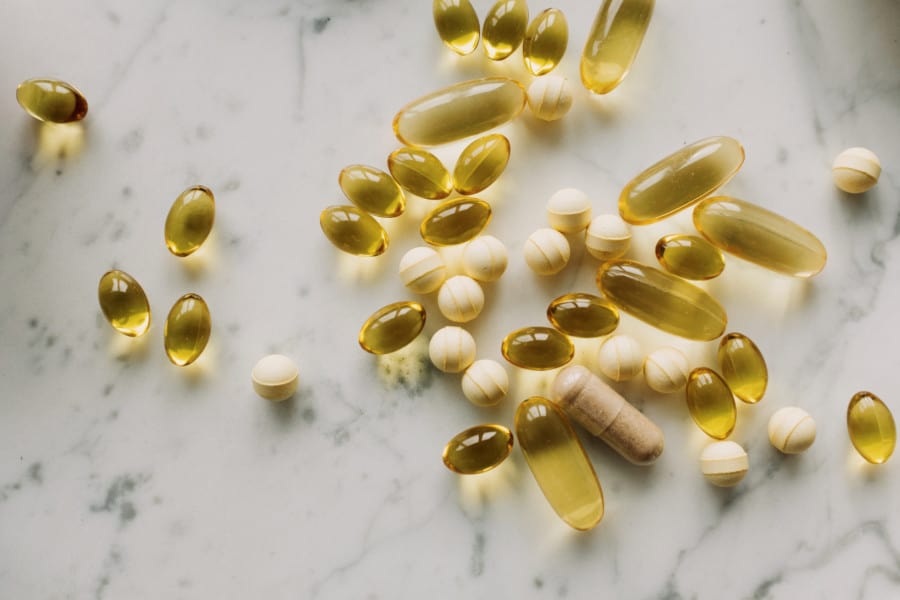
Supplements that won’t likely break your fast
Now here are the supplements that you can take during your fast without impacting it:
- Fish oil and omega 3 supplements: in the recommended dose, they don’t contain enough calories to break your fast. It’s fine to keep taking those even during your fasting window.
- Individual micronutrients: vitamin C, D, E, A, B vitamins or supplements like magnesium or potassium. Those are ok to take during your fast but check the recommended use as some are best taken with food for best absorption.
- Certain multivitamins: those which are sugar-free and don’t contain fillers should be free of calories. They are ok to take during a fast.
- Pure collagen: it may impair autophagy a bit but doesn’t significantly impact your fast overall.
- Prebiotics and probiotics: those don’t contain calories and won’t impair your fast. But again, check the recommended use for the best time to ingest (with or without food).
Best foods to eat after fasting
Now that you know all about what foods and drinks to take or not to take during your fast, what about when you purposely want to break your fast?
It’s recommended to ease back into eating progressively and don’t overindulge just because you haven’t been eating for a long period of time. Your digestive system needs to go back into working mode smoothly and the best way to do this is to start slowly.
For all the information about what to eat to break a fast, check this article that will give all the information needed to ease back into eating happily!
Conclusion
It’s important to be aware of which foods will or will not break your fast. As I mentioned it several times already, one important factor to take into account is the reason why you are fasting in the first place.
Once you know your objective and the corresponding benefits you want to achieve while fasting, you can make an educated decision on whether or not you consume a certain type of food during your fast.
The information we provide at 24hourfast.com is not intended to replace a consultation with a qualified medical professional. By interacting with this site, you agree to our disclaimer. Read more.
